By Megha Mohan
Gender and identity correspondent
Thembi Nkambule has been there for hundreds of people dying from Aids in Eswatini - a country where one in four people have HIV. These are the lessons she has learned on what it means to have "a good death".
Thembi sees three kinds of death.
The first is the most common. The person looks at her with blank eyes that say, "It's over. I've given up." Thembi watches as they close their eyes and let go. A life lived in secrecy ending in shame. This is a bad death.
"Then there is the second type," Thembi says. "The person has a message, or sometimes a warning, for the people they will leave behind. There is a lesson they have learned that they want passed on."
The third is the best type of death; it's a good death. The person is about to die knowing that they will leave their family and community in proper order with all conflicts resolved. This type of death doesn't need Thembi's presence, although for anyone with the illness, she is often there for those final moments.
The illness is Aids and Thembi lives in a rural homestead - chickens clucking in the vast fields outside her home - in the kingdom of Eswatini in southern Africa.
The country - previously known as Swaziland - is what the World Health Organization calls "the epicentre of the global HIV and Aids epidemic" - an epidemic experts say is worsening as a result of Covid.
While significant strides have been made with the country's handling of the virus in the past few decades, the country of 1.3 million people still has the world's highest prevalence rate of HIV, estimated at 26%.
But it was far worse a couple of decades ago.
"Death was all around us then," Thembi says.
She remembers clearly when she first heard of HIV. It was the mid-90s and she was a newly-married mother studying for her bachelor's degree in humanities at the University of Swaziland. There had been a drive to encourage blood donation in the country. Many of Thembi's friends donated, but weeks later they dropped out of university, never to return.
"There were rumours going around that their blood had been found to be contaminated with a deadly disease," she says. "Nothing was confirmed by the government or authorities, but the rumours were that when you got this illness, there was no hope, you just died."
Fear gripped the campus, and Thembi and several of her other friends didn't volunteer to donate blood themselves.
"We thought, if we didn't give blood and get told that we too had contaminated blood, we may be safe."
A few years later, when Thembi was working as a teacher at a high school, she began hearing more about HIV. It now seemed to now be affecting large parts of the country's population, including other teachers, her friends, and worryingly, also her students.
She could tell when people became ill, because they suddenly vanished. Locking themselves away out of sight from everyone. Weeks later she would read about their deaths in obituaries in the local paper - though the illness was never mentioned.
But it was now the early 2000s and HIV was being reported about in the press and discussed on the radio. Thembi went to the library and read about the virus, which was infecting people all over the world. It came with universal stigma, she realised.
It was known that the virus could be passed on through sex but some community leaders added their own theories on top. Only those with loose morals, practising depraved and devilish sex were being infected, said some pastors in their church sermons. Thembi knew this couldn't be true, a woman she knew who had only ever been intimate with her husband had just died from it.
Instead of shying away from the "devilish" people she suspected may be ill, who were being shunned by their families and friends, Thembi made an effort to go to their homes and offer them her company.
"Sometimes I would knock on doors and the person wouldn't let me in," she says. "They were too ashamed. But I waited and told them I was here if they wanted me. I wasn't afraid of them."
And then, in 2002, Thembi caught a cough she couldn't shake. At first, as she cared for her young family, she assumed it was a cold. But the cough persisted. One day she had a lightbulb moment.
"Maybe," she thought to herself, "this cough is not going away because it is HIV."
Thembi went to get tested. The results came back positive.
The first few weeks after her diagnosis were a whirlwind of fear.
"How did I get this?" Thembi thought, "What will happen to my three children?"
At the time, antiretroviral drugs for HIV cost $50 a month, a large slice of Thembi's household income.
"How can I afford this?"
"When will I die?"
There was too much to organise, so Thembi did what she had seen too many people shy away from. She told everyone she knew about her HIV status.
"I knew whatever was going to happen to me, I would need help and support from the people I loved," she says. "If I hid away in shame and secrecy I might as well be dead."
She and her husband sat their children down to talk to them about their HIV status. They told them that the illness could not be passed on through a hug or sharing the same bathroom. They said they would be getting treatment, and Thembi explained this was a virus she already knew something about. Since her diagnosis she had discovered a programme called People Living With HIV, which would help guide them through the illness.
Thembi had no idea in 2002, but within a few years she would go on to become the country director of the programme. Her lived experience of the virus meant that people opened up to her.
Thembi was being called to witness the most devastatingly intimate postcards of people's lives with HIV and Aids. A shocked widow who discovered her husband's positive diagnosis letter after his funeral, tucked away in a drawer under their bed, a secret they slept on for years. A woman who had devised a whole plan to help rural communities with the illness, only to fall violently ill and die with it herself, not living to see her dream come to fruition. Fathers leaving behind crying toddler daughters. Sons in shame, asking Thembi if they would be forgiven in the afterlife. Hundreds and hundreds of deaths.
Many sufferers asked Thembi, a fellow HIV-positive citizen of Eswatini, to be there in their final moments of life.
"I take that very seriously," she says, "I can see what they want from me in that moment without them even needing to say anything. Some want me to hold them. Others don't want to be touched but they want someone present. I treat each person as an individual. I give them that dignity."
She wants to give them a good death.
What is a 'good death'?
The concept of a good death has been around for a long time. In 1601 Church of England clergyman Christopher Sutton wrote that dying well involved a deathbed and an audience of loved ones. He noted that a sudden death meant you didn't have time to say goodbye, but a long illness (aside from being painful) made you a burden to others.
It's now a subject for discussion among those providing end-of-life care. According to the US NGO, The National Academy of Medicine, a good death is "free from avoidable distress and suffering for patient, family and caregivers, in general accord with the patient's and family's wishes, and reasonably consistent with clinical, cultural and ethical standards".
If in the West the focus is often on dying with minimal pain, in Africa the emphasis may be placed on how your death will affect the community around you, according to Dr Rabi Ekore. "Individuals... have a sense of obligation to a larger set of other individuals," she writes in The Journal of Palliative Care. So any shame or stigma related to illnesses like HIV is a further barrier to a "good death".
"Today in 2021, far fewer people get HIV or die from Aids in Eswatini than when I was diagnosed," Thembi says, "but already because of the restrictions of Covid, from what I am hearing on the ground, we can expect to see a rise in HIV."
Rose Craigue, Eswatini country director for UNAids, explains that disruption to healthcare programmes in low-income countries - including distribution of contraceptives - is likely to result in seven million unintended pregnancies, according to the UN Population Fund.
"If people are not using protection in an environment where one in every four people is living with HIV, it's logical to assume that Covid is going to increase the prevalence of HIV," she says.
There is also an increase in gender-based violence, including rape, she suggests.
Meanwhile, in November a projection published in the medical journal, The Lancet, said disruption of HIV treatment due to the pandemic could increase HIV mortality by 10% within five years.
Prior to the pandemic Eswatini had made significant progress in the fight against HIV and Aids, Rose Craigue says, "especially in prevention and treatment".
"People no longer have to pay $50 for a month's supply of antiretroviral drugs, it is now less than $1, but there is still a lot of work to do.
"More than half of the population is under the age of 20 and nearly half of the youth are at an exceptionally high risk of HIV infection."
UNAids says that in 2020, young people aged 15-24 accounted for 42% of new HIV infections globally and almost 80% (4 million) of them live in sub-Saharan Africa.
For Thembi, though, people are not statistics, and when she meets someone whose HIV infection has developed into Aids, and whose prognosis is poor, she reminds them of this.
"A good death is peace," says Thembi.
"With HIV and Aids, it is often hard for people to give themselves that peace. To leave this world without regrets," she adds, "I say to them that at the end of the day, life is about finding peace in yourself for the decisions you made in the circumstances you were in.
"Other people will treat you the same as you treat yourself," Thembi says.
"No-one can put shame into you that you do not have yourself. And no-one should feel shame about an illness."
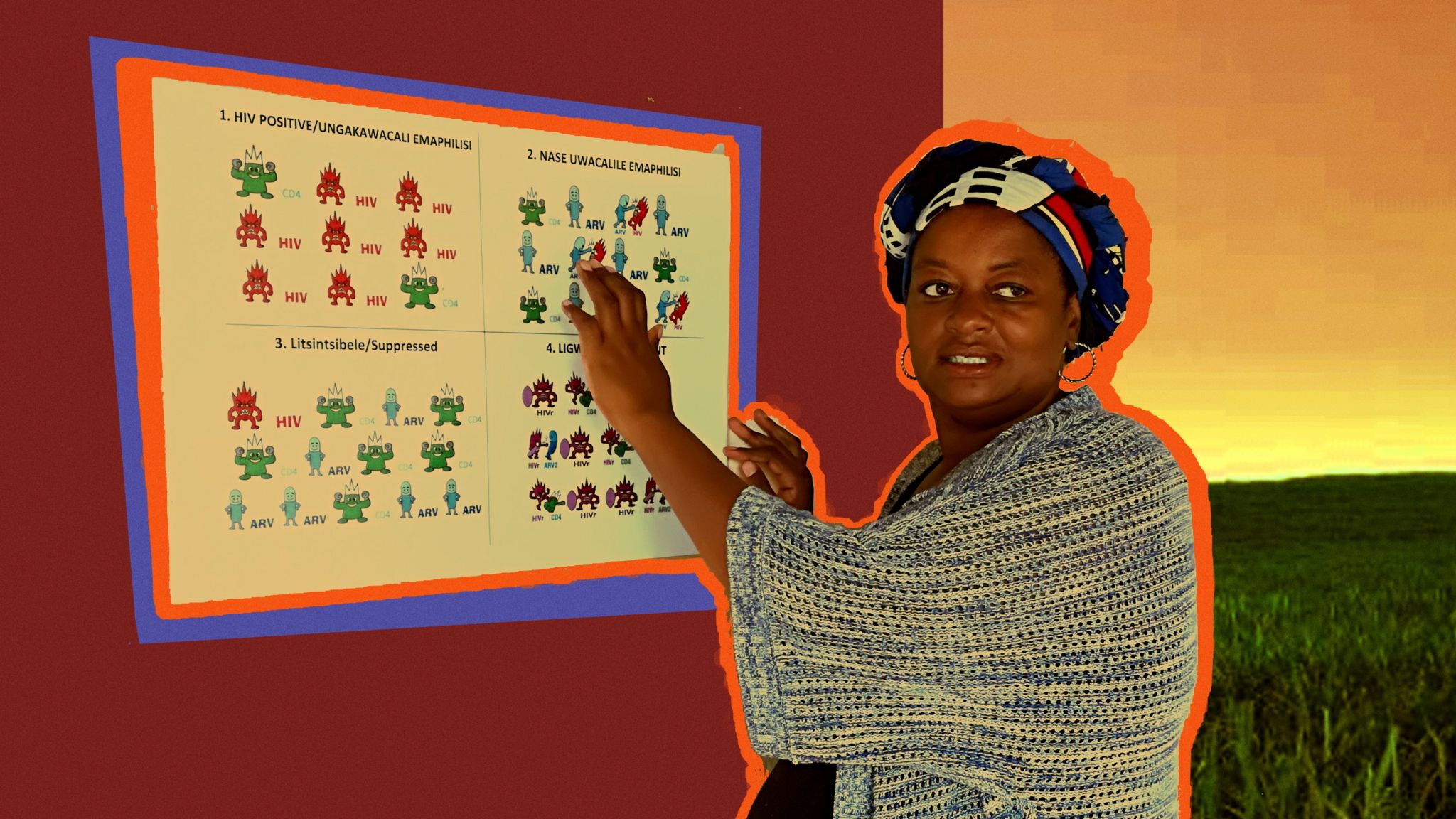
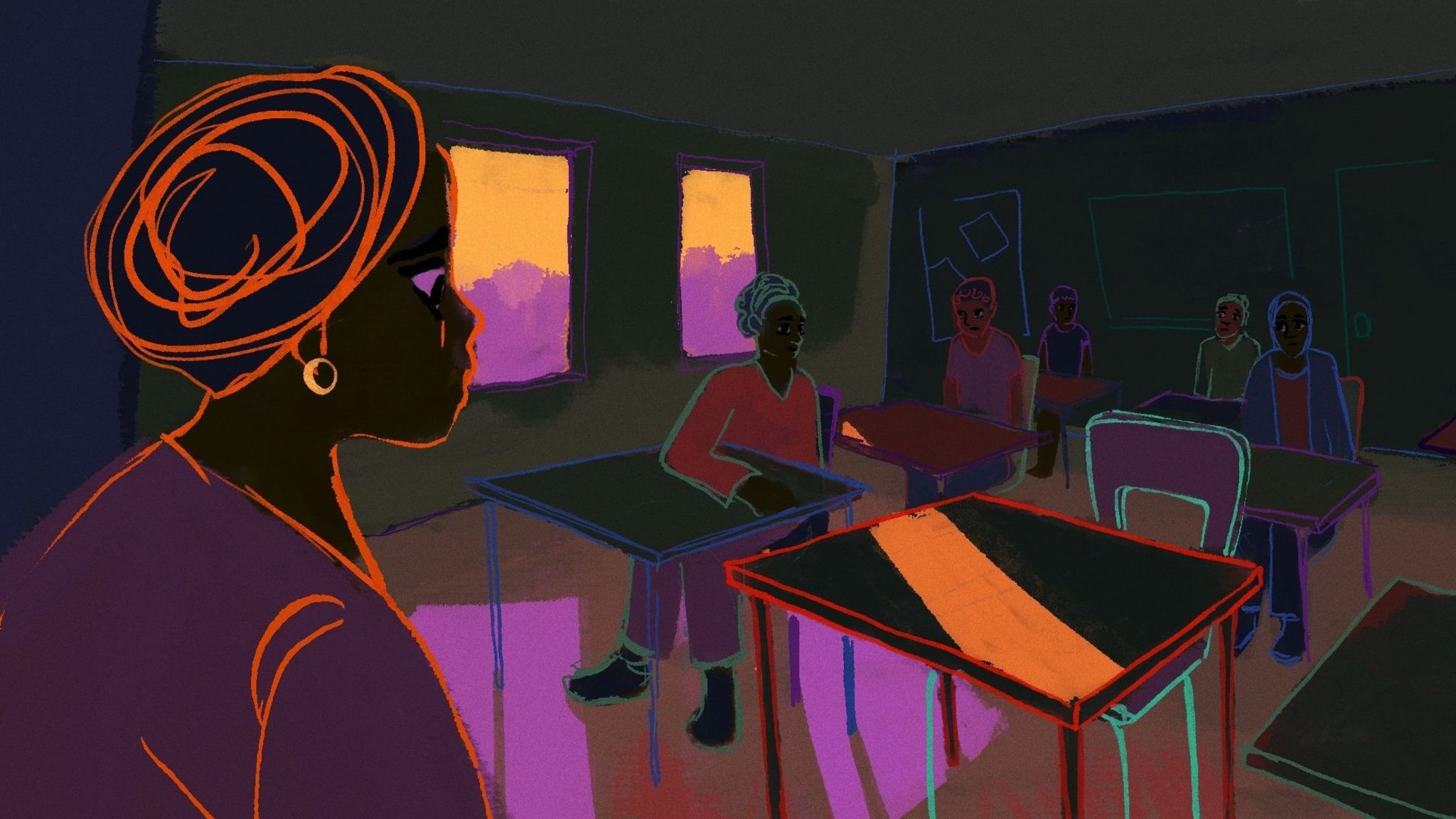
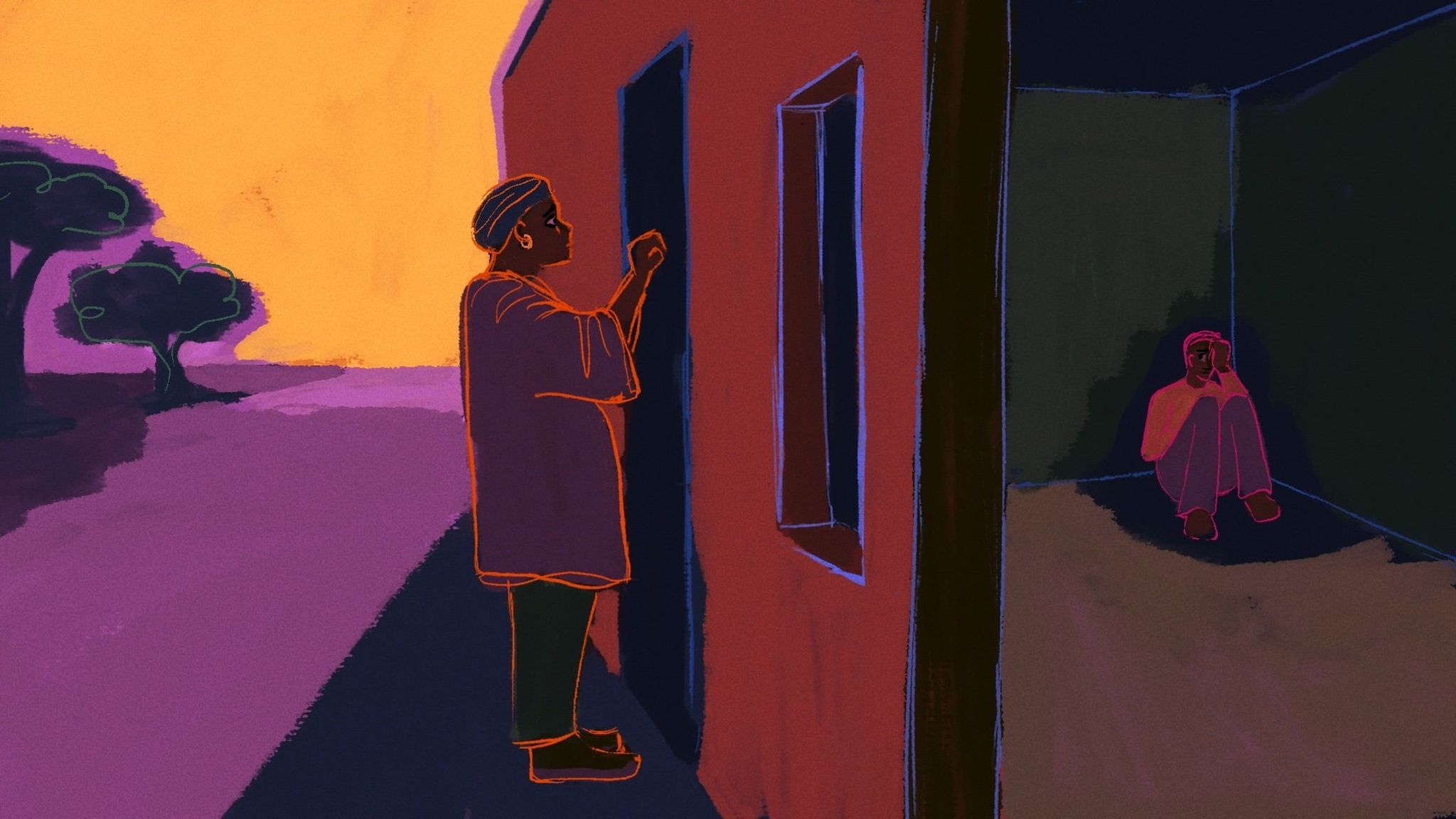
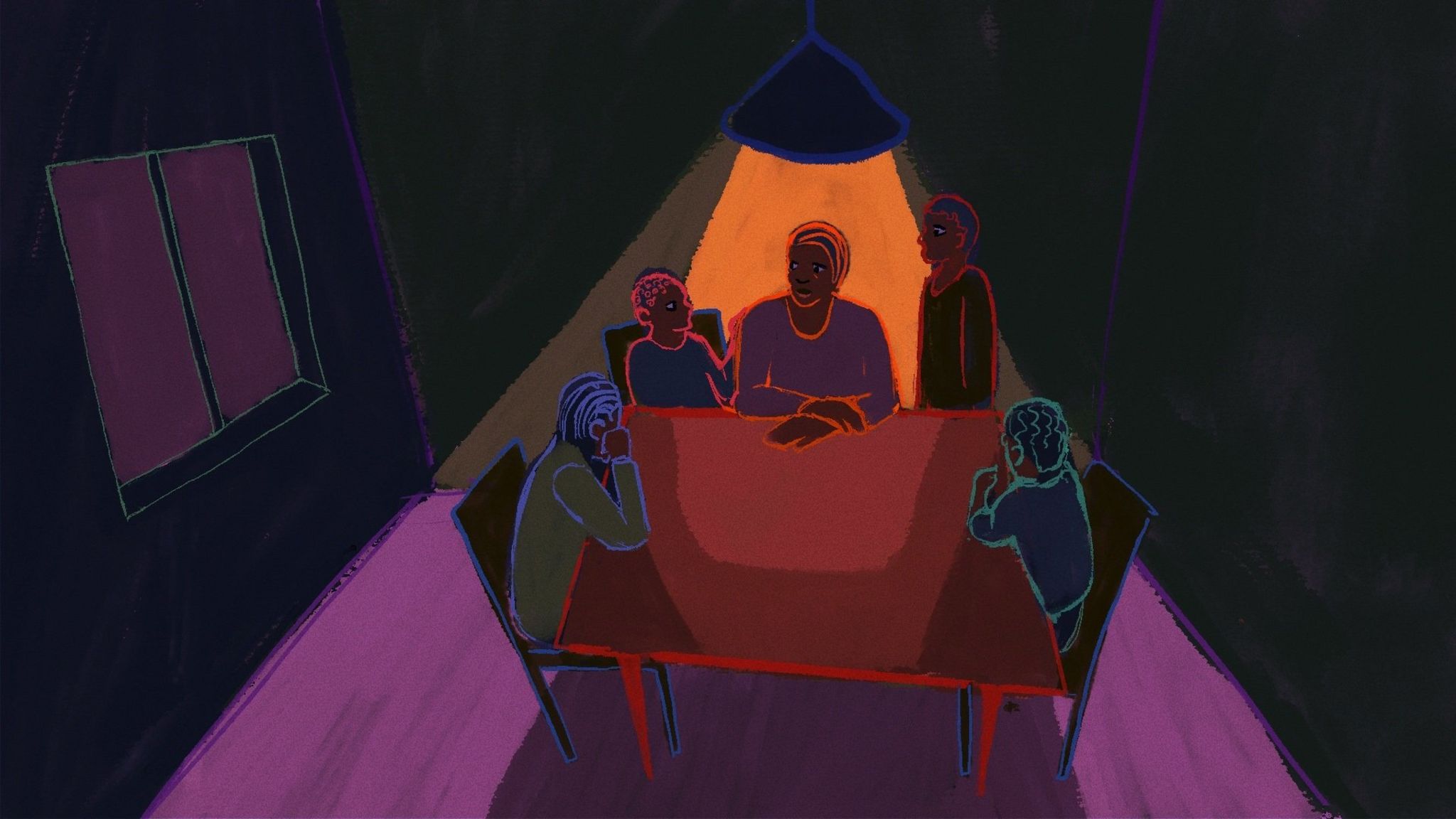

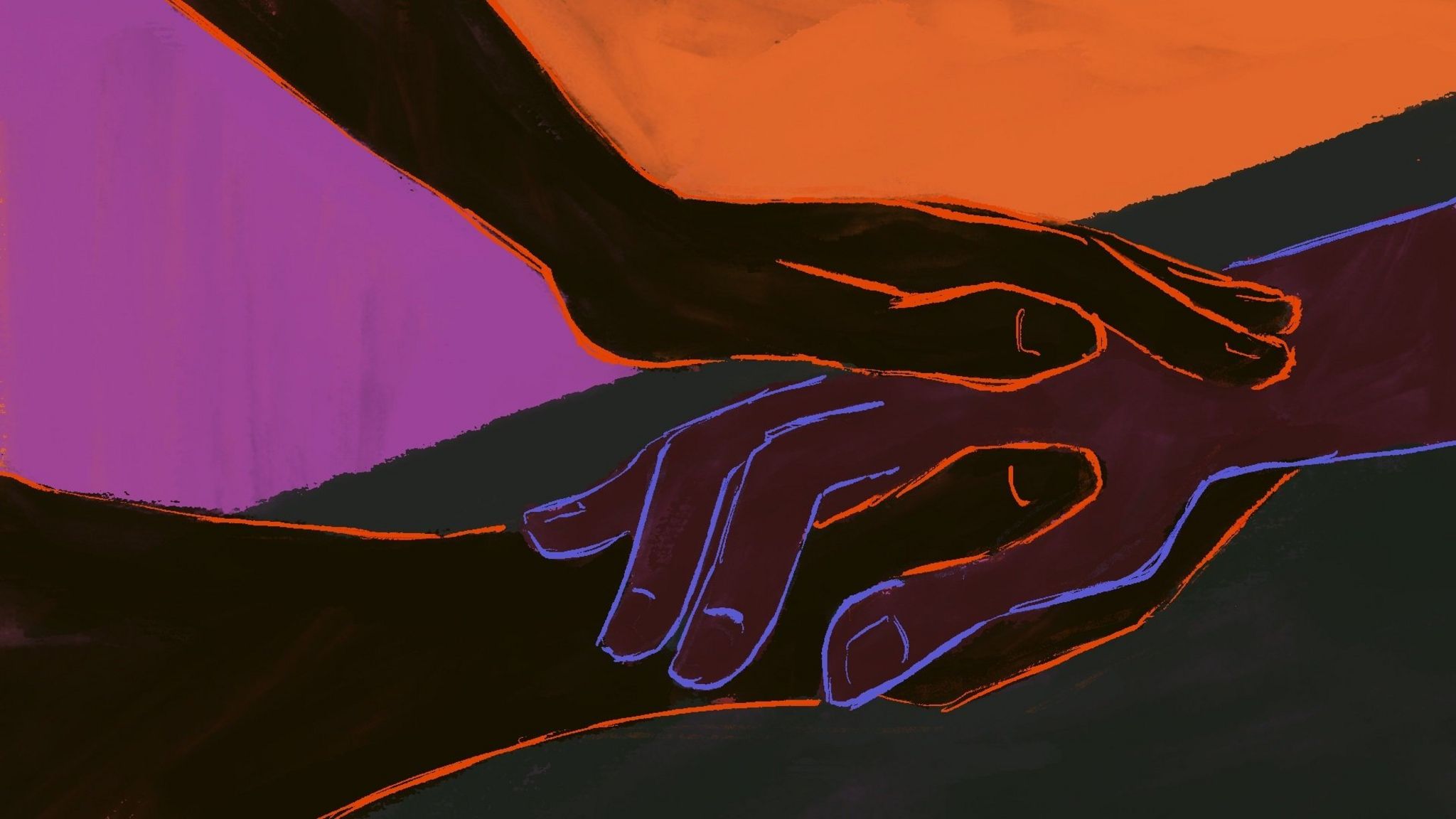

No comments:
Post a Comment